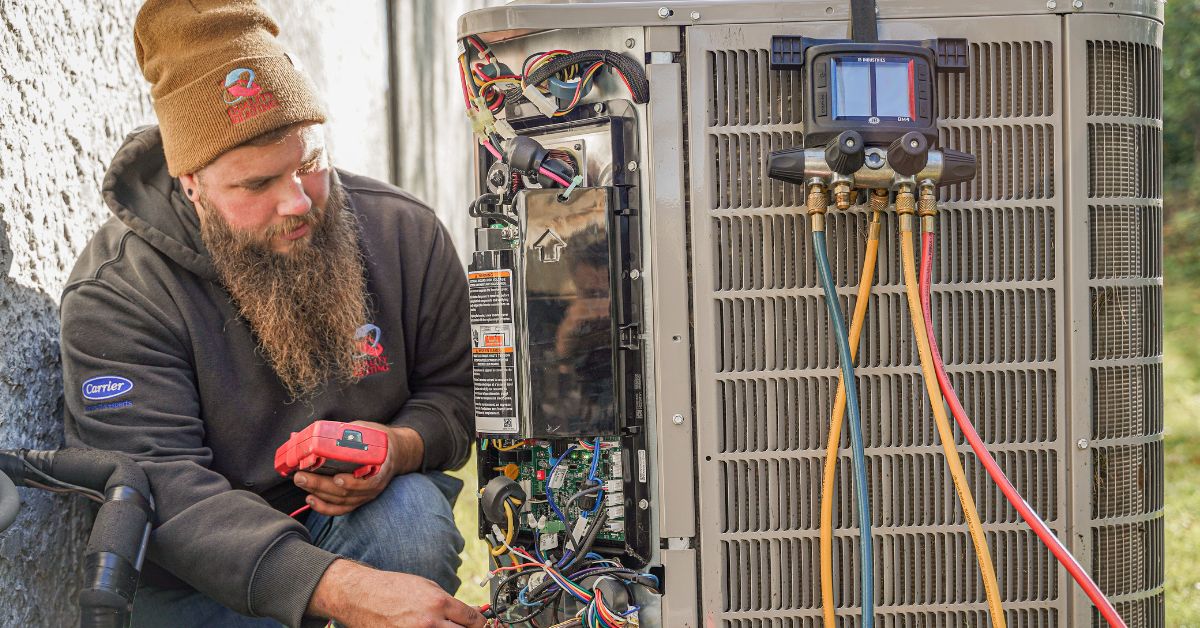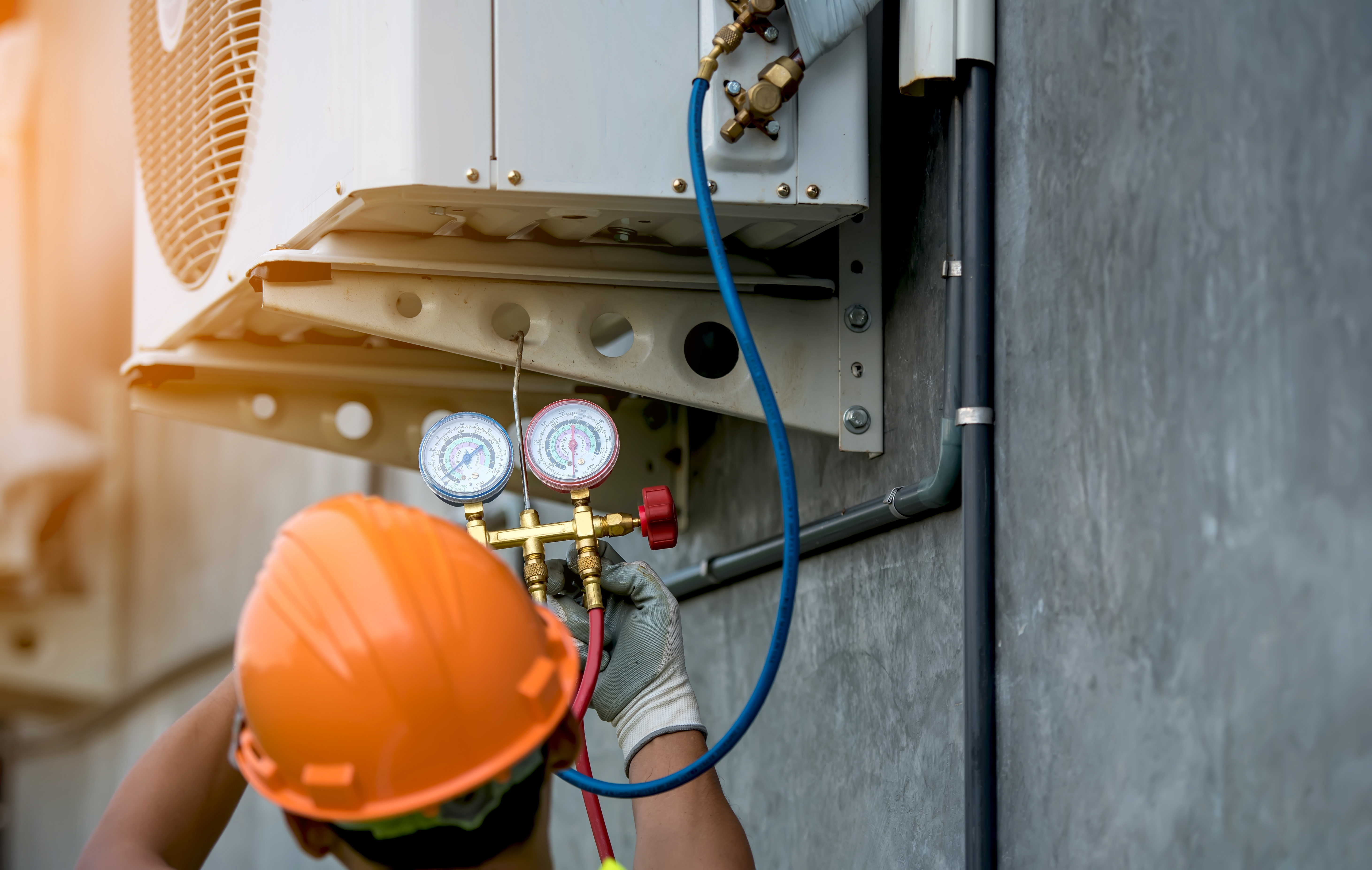How to choose the right HVAC company for your home comfort needs
The Importance of Heating And Cooling Understanding: Revealing Root Causes Of Air Conditioner Issues for House Owners
House owners often overlook the relevance of understanding their HVAC systems. Recognizing usual signs of cooling problems can lead to timely treatments. Concerns like inadequate cooling or unusual sounds are not just annoyances; they can show much deeper concerns. By discovering the root causes of these problems, home owners can enhance system performance and prolong its life-span. What are one of the most prevalent problems that can emerge, and how can they be effectively addressed?
Typical Signs of Air Conditioner Troubles
How can house owners determine problems with their a/c systems before they intensify? Acknowledging common signs of a/c problems is important for timely upkeep. One common sign wants air conditioning; if the a/c system falls short to decrease the interior temperature level, it may indicate underlying problems. Unusual noises, such as grinding or hissing, can also indicate mechanical failures or loosened components - HVAC company. Furthermore, home owners must watch out for strange odors emanating from the device, which may recommend mold development or electrical issues. Frequent cycling on and off, recognized as brief cycling, can suggest thermostat concerns or refrigerant leaks. Furthermore, a rise in energy costs without a matching rise in usage may indicate inadequacy. By staying sharp to these caution indicators, home owners can stop much more significant issues and expensive repair work, ensuring their cooling systems operate effectively throughout the warmer months

Recognizing Cooling Agent Issues
Refrigerant issues can substantially impact the efficiency of a HVAC system. House owners must recognize the signs of low refrigerant levels and the importance of identifying refrigerant leakages. Addressing these issues quickly can avoid further damage to the system and guarantee height cooling performance.
Reduced Refrigerant Degrees
A typical problem that homeowners may encounter with their cooling and heating systems is low cooling agent levels, which can greatly affect the system's effectiveness and performance. Refrigerant is important for the cooling procedure, absorbing warm from indoor air and releasing it outside. When degrees go down, the cooling system battles to cool the room effectively, bring about boosted power usage and possible system strain. Symptoms of reduced refrigerant consist of inadequate air conditioning, longer run times, and ice formation on the evaporator coils. House owners might likewise notice uncommon sounds as the compressor works harder to make up for the shortage. It is important for property owners to understand the importance of keeping appropriate refrigerant levels to assure peak heating and cooling efficiency and long life.
Refrigerant Leaks Discovery
Where might a homeowner begin when confronted with the possibility of refrigerant leaks in their heating and cooling system? The primary step involves monitoring the system's efficiency. Indications such as lowered cooling down performance, ice development on coils, or hissing audios might indicate a cooling agent leak. Property owners ought to additionally look for noticeable indicators of oil residue, usually a telltale indicator of a leakage. Using a cooling agent leak detector can offer more exact identification. If uncertainties linger, speaking with a qualified HVAC professional is crucial, as they possess the proficiency and equipment to locate leakages successfully. Trigger discovery and fixing of cooling agent leakages not only enhance system effectiveness but also protect against potential ecological harm, making it an important facet of cooling and heating upkeep.
Electric Failures and Their Impact
Electric failures can greatly impact HVAC systems, particularly through concerns like circuit breaker malfunctions and malfunctioning electrical wiring. These issues not just interrupt the system's performance but can likewise lead to pricey repair work and safety threats. Understanding the ramifications of such failings is important for property owners to keep an effective and secure cooling and heating setting.
Breaker Issues
Just how can breaker issues influence the performance of a HVAC system? Breaker function as critical safety and security tools that manage electric flow to cooling and heating units. If a breaker trips regularly, it interrupts power supply, causing inconsistent home heating or cooling. This can trigger substantial stress on the system, resulting in inefficient procedure and prospective damages to elements. House owners might see enhanced energy costs because of the heating and cooling system's struggle to keep desired temperature levels. Additionally, repeated disruptions from tripped breakers can shorten the life expectancy of the air conditioning unit, calling for pricey fixings or replacements. Regular maintenance of circuit breakers is essential, as it guarantees a secure power supply, inevitably improving the total performance of the HVAC system.
Faulty Electrical Wiring Impact
Often ignored, damaged electrical wiring can have dire consequences for a/c systems. Circuitry concerns may cause brief circuits, causing frequent failures and raised repair service prices. On top of that, improper electrical wiring can trigger ineffective energy use, bring about greater utility expenses and stress on the system. In extreme cases, damaged wiring can set off electric fires, posturing a substantial safety threat to property owners. These electrical failings can damage Heating and cooling parts, resulting in expensive substitutes or comprehensive fixings. House owners need to prioritize routine inspections by certified experts to determine and remedy wiring issues prior to they intensify. Recognizing the implications of malfunctioning circuitry can assist guarantee the long life and safety and security of a/c systems, eventually shielding both the home and its residents.
Clogged Filters and Their Repercussions
While numerous home owners may ignore the significance of routine filter maintenance, clogged up filters can bring about substantial consequences for cooling and heating systems. When filters become blocked with dust, dirt, and debris, air flow is limited. This decrease in air movement requires the system to function harder, causing enhanced power intake and potentially greater energy costs. In time, this pressure can cause damage on elements, resulting in early system failing.
Furthermore, clogged up filters can jeopardize interior air quality. Contaminants and allergens may circulate throughout the home, exacerbating breathing problems and allergic reactions for owners. Furthermore, poor air flow can trigger the evaporator coil to freeze, leading to expensive repair services and inefficient cooling performance. Frequently transforming or cleansing filters is a simple yet necessary upkeep task that can help guarantee the longevity and performance of a/c systems, inevitably benefiting both the homeowner's comfort and their finances.

Thermostat Malfunctions Discussed
What happens when a thermostat malfunctions can significantly influence AC repairman both comfort and energy efficiency in a home (AC repairman). A defective thermostat may fall short to accurately review the temperature level, resulting in overcooling or not enough cooling. This discrepancy can create discomfort for residents and result in greater energy expenses, as the heating and cooling system functions tougher than needed
Usual problems consist of dead batteries, which can provide electronic thermostats faulty, and loosened electrical wiring that interrupts communication between the thermostat and the heating and cooling system. Additionally, outdated or badly adjusted thermostats might not respond properly to temperature changes, even more intensifying power inefficiency.
Home owners ought to be alert for indications of malfunction, such as inconsistent temperature levels or unanticipated energy prices. Normal checks and understanding of the thermostat's capability can aid identify problems early, guaranteeing peak efficiency of the a/c system. Resolving thermostat problems without delay is important for preserving a comfy living setting and managing power usage effectively.
The Role of Regular Maintenance
Routine maintenance plays an important duty in making certain the long life and efficiency of cooling and heating systems. Homeowners that prioritize routine checks can avoid minor concerns from rising right into pricey fixings. Regular maintenance typically includes jobs such as cleaning up filters, checking ductwork, and examining cooling agent degrees. These activities assist keep suitable airflow and system performance, lowering power intake.
A well-kept Heating and cooling system operates a lot more successfully, offering consistent comfort throughout the home. Normal tune-ups can additionally expand the lifespan of the device, resulting in considerable savings over time. Home owners are urged to set up specialist evaluations at the very least annually to identify prospective troubles early.
Additionally, numerous makers require regular maintenance to maintain warranties, making this method not just helpful yet commonly necessary. Overall, comprehending the relevance of routine maintenance equips home owners to secure their HVAC systems versus unanticipated failures and enhance their financial investment in home comfort.
Regularly Asked Inquiries
Just How Can I Enhance My Air conditioning's Energy Efficiency?
Improving an AC's power efficiency includes regular maintenance, cleaning or changing filters, securing ductwork, making certain proper insulation, using programmable thermostats, and scheduling professional assessments to identify and correct possible problems affecting performance.
What Is the Lifespan of a Common A/c Device?
A regular air conditioning device has a life-span of 15 to 20 years, depending on upkeep, usage, and environmental aspects. Routine maintenance can considerably prolong its operational life and improve general effectiveness.
When Should I Replace My Cooling System?
An air conditioning system should normally be changed every 10 to 15 years. Signs for substitute consist of constant repair services, rising power bills, and insufficient air conditioning, showing that an upgrade may be much more cost-effective and efficient.
Can I Troubleshoot Air Conditioning Troubles Myself?
Yes, people can fix AC troubles themselves by checking filters, making certain power supply, and examining for visible concerns (ac unit replacement). Complicated troubles typically call for expert assistance for exact diagnosis and risk-free fixing, guaranteeing perfect system performance.
Just how Do I Pick a Trusted Cooling And Heating Service Technician?

To choose a reliable cooling and heating technician, one should seek referrals, examine on-line testimonials, confirm licenses and insurance policy, evaluate experience, and request detailed estimates to assure high quality solution and fair prices prior to choosing.
Verdict
To sum up, a solid understanding of HVAC systems enables home owners to efficiently identify and address common a/c issues. Recognizing signs such as poor cooling or increasing power prices enables timely treatments, which can significantly boost system performance and long life. By staying educated concerning potential problems like refrigerant leakages, electric failings, and clogged up filters, house owners can take aggressive procedures to keep their systems, inevitably ensuring comfort and advertising a healthier living atmosphere. Routine upkeep stays essential to this undertaking.